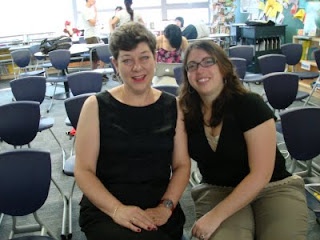Tread Lightly is a climate change education initiative offered by TakingITGlobal through the generous support of the Staples Foundation for Learning.®
why flat classroom? - Flat Classroom Conference
EXCELLENT blog post from Sara, teacher from Korea who brought 4 students to the workshop this weekend.
Getting my four students to Hong Kong was a blur; the process of application seems like it was years ago; but these last 48 hours made it all worth while. I feel like it's one of those "why I teach" moments: I gaze across the room and see my four little angels engaged in a real conversation on the concept of the Digital Divide (aka the haves and the have-nots, the digitally informed and tuned in and the not, etc.) and they are THINKING. They are MOTIVATED. They are OWNING THEIR LEARNING. You know, I wonder when I'll move past using capital letters to emphasize my points and just let the points emphasize themselves...but I digress. After the usual flailing, "What-do-we-do-Ms.P-What-do-they-want?" conversations to which I responded "What do you think?", the inspiration struck and they ran. They planned, they researched, they reflected, they pitched their ideas, they skewed their ideas, they created a digital artifact that reflected their ideas, they presented their ideas, and above all, they BELIEVED in their ideas. It wasn't what we told them was right, it wasn't what the rubric said was right, it wasn't what would get them into Harvard, it was just a real-life solution to a real-life problem and the kids believe that they have the real-life answer. That, my friends, is authentic learning.CreateDebate in the Classroom enables teachers to customize and build an online debate community that can be easily incorporated into almost any lesson plan. Typically, teachers will create debates around questions that will build on the current course of study. The goal is to engage students and enrich the classroom conversation through peer collaboration. Debates can be conducted in the classroom “real-time” (if computers with Internet access are available) or participation can be assigned as homework and reviewed in class.
Posted from Diigo. The rest of my favorite links are here.




